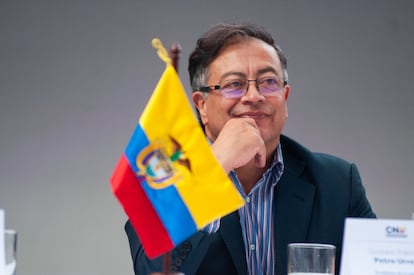Latin America, quo vadis?
As populism, polarization and post-truth take hold, Colombia seems headed for the same toxic political environment that has become the norm across the region

Colombia has just elected its next president, Gustavo Petro. Despite his long political career, the president-elect presents himself as an outsider who is out to dislodge the long-ruling elites from power. That’s the same promise made by Andrés Manuel López Obrador of Mexico, Gabriel Boric of Chile, Pedro Castillo of Peru, Alberto Fernández of Argentina and several other Latin American presidents. On October 2, Brazil will hold elections and it is almost certain that the current President Jair Bolsonaro will face off against former president Lula da Silva.
In addition to aggressively confronting their opponents, all of these leaders have promised sweeping institutional changes and economic reforms. All of them have also committed to reducing poverty and inequality.
Will they succeed?
No.
For several decades, barely any out of the long list of leaders who have tried to make sweeping changes to their respective countries have succeeded. The only exceptions to this trend were Hugo Chávez and his anointed successor, Nicolas Maduro. The two did indeed drastically transform Venezuela. They destroyed it.
The new Colombian president is the latest member of this club of leaders coming to power on the back of alluring populist promises that they either won’t be able to keep or, more ominously, will impose in spite of dire consequences. They will lead societies that suffer such extreme levels of political and social polarization that reaching the necessary agreements and compromises between rival groups will be next to impossible.
As in many other parts of the world, important decisions in Latin America are held up by a new form of polarization that feeds on group identities such as religion, race, gender, region, age, economic interests, ideologies and more. This polarization, which has always existed, has now been supercharged by post-truth: the rise of disinformation, fake news, and the manipulation and dissemination of messages that create distrust, fear and anger.
These are the three “Ps” that define the current political environment across much of the world: populism (divide and rule, promise and win), polarization (the use and abuse of discord) and post-truth (who, what, to believe?)
All signs point to the global economy experiencing a sharp contraction, and Latin America is bound to be seriously affected
Governing successfully in this context becomes even more difficult in the difficult economic situation facing Latin America. The region’s economies depend on the price of their main exports: raw commodities. When global demand and prices rise, Latin American governments are able to spend freely, and smooth over political and social frictions. When prices fall, political and social conflict intensifies. It is a longstanding pattern.
All signs point to the global economy experiencing a sharp contraction, and Latin America is bound to be seriously affected. While conventional wisdom is that recessions tend to depress demand and contain rising prices, Latin America is likely to experience the double whammy of a recession and rising inflation, the much-dreaded phenomenon of stagflation.
Runaway inflation, a phenomenon hitherto unknown to the vast majority of people in the region, especially those under 30, will impose itself on the agenda as a pernicious source of hunger, impoverishment, inequality, economic stagnation and social conflict.
The political effects of inflation will be compounded by a terrible pre-existing condition: disillusionment with democracy. Millions of Latin Americans hard hit by the pandemic, unemployment, bad public services, food insecurity, corruption and crime have lost hope that elections and democracy will bring the solutions they desperately need.
This is the context in which President Gustavo Petro will have to govern Colombia.
He has three alternatives: The first is to try to implement his agenda piecemeal by opportunistically working with some of the leaders, parties and social groups that oppose him. That would inevitably require the president to make concessions. Broadening his base of support in this way will require messy compromises.
The second alternative is that Petro pushes for a vast and inclusive national accord that allows important decisions to be made on the basis of a broad consensus. Again, this involves making concessions that may be hard to swallow for the president and those who supported him in winning the presidency.
The third option is to behave as other 3P presidents have done around the world: stealthily weakening the institutions, the norms, and the checks and balances that define democracy by demonizing his opponents on the basis of a firehose of lies.
Let’s hope that Colombian democracy will survive the allure of the 3Ps.
Tu suscripción se está usando en otro dispositivo
¿Quieres añadir otro usuario a tu suscripción?
Si continúas leyendo en este dispositivo, no se podrá leer en el otro.
FlechaTu suscripción se está usando en otro dispositivo y solo puedes acceder a EL PAÍS desde un dispositivo a la vez.
Si quieres compartir tu cuenta, cambia tu suscripción a la modalidad Premium, así podrás añadir otro usuario. Cada uno accederá con su propia cuenta de email, lo que os permitirá personalizar vuestra experiencia en EL PAÍS.
¿Tienes una suscripción de empresa? Accede aquí para contratar más cuentas.
En el caso de no saber quién está usando tu cuenta, te recomendamos cambiar tu contraseña aquí.
Si decides continuar compartiendo tu cuenta, este mensaje se mostrará en tu dispositivo y en el de la otra persona que está usando tu cuenta de forma indefinida, afectando a tu experiencia de lectura. Puedes consultar aquí los términos y condiciones de la suscripción digital.









































